Quick Snapshot: Best Roofing Options by Budget & Use Case
TL;DR: Best Picks for Roofing Materials in Kenya (Budget, Mid, Premium)
- Budget option – Corrugated mabati sheets (KSh 500–700 per meter, 10–15 years lifespan).
- Mid-range option – Box profile mabati or stone-coated sheets (KSh 1,000–1,800 per meter, 20–30 years lifespan).
- Premium option – Concrete or clay tiles (KSh 2,000–3,000+ per meter, 30–50 years lifespan).
Compare prices and durability to choose the best roofing material for your project.
Quick Action: Get a Free Quote or Download Roofing Price Checklist
Ready to plan your roof?
Request a free roofing quote from trusted suppliers in Kenya.
Download our roofing price checklist (PDF/Excel) with updated 2025 prices for Mabati, tiles, and flat roofs.
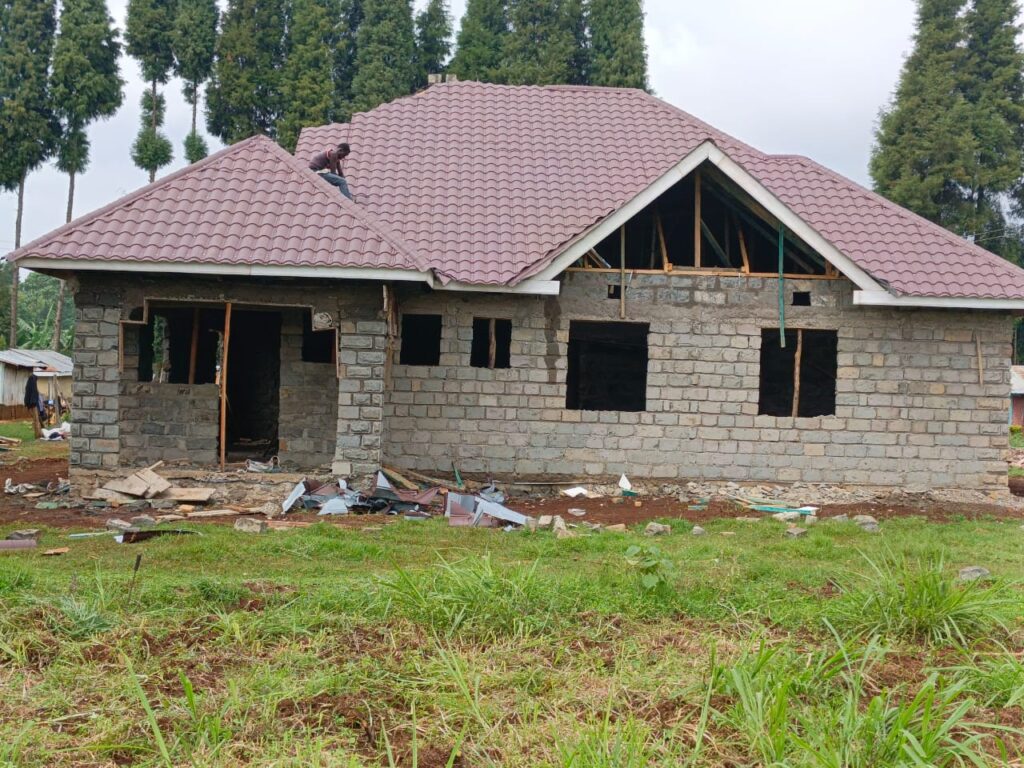
Why Your Roofing Choice Matters in Kenya
Climate Zones and Corrosion Risk in Kenya
Kenya’s climate greatly affects roofing materials. Coastal areas face salty air, which speeds up rust on mabati sheets. High-altitude regions experience heavy rains and cold, requiring stronger and well-sealed roofs. Equatorial zones get intense sun, so heat-resistant and UV-coated roofing is best. Always match your roofing choice with your region’s climate to avoid costly repairs.
Structural Load, Roof Pitch, and Local Building Norms
The strength of your house structure affects which roofing material you can use.
Heavy materials like concrete or clay tiles need stronger rafters and beams. Lightweight options like mabati are better for standard homes and affordable housing. Roof pitch also matters — steep roofs shed rain faster, while flat roofs need waterproof membranes.
Local building codes guide the minimum roof slope and materials allowed in certain areas. Checking load capacity and building norms before buying ensures your roof is safe and long-lasting.

What to Consider Before You Buy (Decision Checklist)
Durability, Weight, Thermal Performance, Noise, Aesthetics
Before choosing roofing materials in Kenya, check how they perform long-term.
Durability: Stone-coated tiles and concrete tiles last longer than basic mabati.
Weight: Heavy tiles need stronger roof support, while lightweight mabati is easier to install.
Thermal performance: Insulated or coated sheets reduce indoor heat.
Noise: Metal roofs can be noisy in heavy rain unless insulated.
Aesthetics: Choose colours and styles that boost curb appeal and match your home design.
Maintenance Needs & Lifecycle Cost (Not Just Upfront Price)
Cheap roofing can be costly in the long run.
Some mabati sheets may rust quickly if not coated properly. Concrete and clay tiles need less frequent replacement but cost more upfront. Factor in painting, cleaning, and repair costs over the roof’s lifetime.
Always compare lifecycle cost vs initial price to see the real value.
Delivery, Lead Times & Regional Availability (Nairobi / Mombasa / Upcountry)
Roofing prices vary by location in Kenya.
Nairobi has many suppliers with faster delivery. Mombasa requires corrosion-resistant Mabati due to salty air. Upcountry buyers may pay more for transport and longer lead times.
Always confirm delivery charges and stock availability before making payment.
Permits, Warranties & Local Standards
Before buying, check local building codes and supplier guarantees. Some counties require approved roofing materials for safety. Reputable suppliers should offer 5–30 year warranties, depending on material type. Ask for compliance certificates, especially for imported tiles or membranes.
A warranty-backed roof saves you money if defects appear early.
Full Price Breakdown: Material, Accessories & Installation
How to Read a Quotation: Material vs Labour vs Accessories
A roofing quotation in Kenya usually includes three parts:
Materials: sheets, tiles, or membranes.
Labour: cost of skilled and unskilled workers.
Accessories: extras like nails, gutters, and ridge caps.
Always request a detailed quotation so you can compare suppliers fairly.
Related post: House Designs in Kenya: Trends and Options for Every Budget
Typical Accessory & Consumables Costs (Underlay, Purlins, Screws, Ridge Caps, Gutters)
Accessories can add 15–25% to the total roof cost.
Underlay/insulation: KSh 100–200 per m².
Purlins/timber: depends on roof size, often 20–30% of total material cost.
Screws and nails: small but essential, around KSh 500–1,000 per bundle.
Ridge caps and gutters: KSh 400–1,500 each, depending on style.
Don’t ignore accessories — they protect your roof and extend its lifespan.
Example Cost Scenarios (30 m², 60 m², 120 m² Roofs) — Downloadable Spreadsheet
Here’s an estimate for mabati roofing in 2025:
30 m² roof: from KSh 25,000–40,000 (basic mabati).
60 m² roof: from KSh 50,000–80,000.
120 m² roof: from KSh 100,000–160,000 (mid-range or stone-coated).
For a detailed breakdown, download our free roofing price calculator (Excel).
Regional Price Variations and Why They Occur
Roofing prices are not the same across Kenya. Nairobi suppliers are cheaper due to competition. Coastal towns like Mombasa sell corrosion-resistant mabati at slightly higher prices. Upcountry buyers face extra transport costs, raising overall prices.
Compare quotes from at least two regions if your project allows flexibility.
Common Roofing Materials in Kenya — Prices, Pros & Cons
Metal / Mabati (Corrugated, Box Profile, Pre-Painted)
Corrugated: 500–700 KSh per m², gauge 30–32, lifespan 10–15 years. Cheap but rusts fast and is noisy.
Box Profile: 800–1,200 KSh per m², gauge 28–30, lifespan 15–20 years. Modern look, stronger.
Pre-painted/Coated: 1,200–1,800 KSh per m², gauge 26–28, lifespan 20–30 years. Stylish and rust-resistant, but higher price.
Best for: budget builds, rentals, residential & commercial use.
Stone-Coated Metal Tiles
Price: 2,000–3,500 KSh per m².
Weight: ~7kg per m², heavier than mabati.
Lifespan: 30–50 years.
Pros: Premium look, very durable, minimal maintenance.
Cons: Expensive, longer installation.
Best for: mid- to high-end homes, long-term investment.
Concrete & Clay Tiles
Concrete tiles: 80–150 KSh per tile, lifespan 40–60 years, heavy and needs a strong truss.
Clay tiles: 100–250 KSh per tile, lifespan 50+ years, classic look, but fragile when handled.
Pros: Long-lasting, aesthetic appeal, weather resistance.
Cons: Very heavy → higher structural cost.
👉 Best for: permanent residences, estates, premium homes.
Composite & Lightweight Tiles
Price: 1,800–2,800 KSh per m².
Pros: Stylish, lighter than clay/concrete, faster to install.
Cons: Limited availability, mostly imported, and higher upfront cost.
Best for: modern urban homes, renovations with weaker trusses.
Flat Roofing Membranes (EPDM, PVC, Bitumen)
EPDM: 1,200–1,600 KSh per m², lifespan 15–20 years, UV resistant but imported.
PVC: 1,500–2,000 KSh per m², lifespan 15–25 years, durable but costly and needs skilled labour.
Bitumen: 800–1,200 KSh per m², lifespan 10–15 years, affordable but shorter-lasting.
Best for: apartments, malls, warehouses, and small flat extensions.
Polycarbonate / Translucent Sheets (Skylights, Verandas)
Price: 1,000–2,500 KSh per m² (thickness 6–10mm).
Lifespan: 10–15 years.
Pros: Lightweight, easy to install, lets in natural light.
Cons: Can yellow, less impact-resistant.
Best for: verandas, skylights, carports, greenhouses.
Eco / Alternative Options (Cool Roofing Paints, Green Roofs, Recycled Materials)
Cool roof paints: 400–600 KSh per litre, reduces indoor heat by up to 7°C.
Green roofs: 2,500–5,000 KSh per m², eco-friendly but needs waterproofing & strong slabs.
Recycled materials: 1,200–1,800 KSh per m², sustainable but limited local supply.
Best for: eco-conscious homeowners, urban apartments, sustainable builds.
Detailed Cost vs Value Analysis (ROI)
Lifespan × Maintenance × Replacement Cost — Example TCO Calculations
A cheap mabati roof at 700 KSh per m² may last 12 years → needs replacement 2–3 times in 30 years. A stone-coated tile roof at 2,800 KSh per m² may last 40+ years → no replacement needed in the same period.
Total Cost of Ownership (TCO): premium options often save money long-term despite higher upfront costs.
Energy & Comfort Savings (Cool Roofs, Insulation)
Cool roofing paints reduce indoor heat by 5–7°C → lower electricity bills for fans/AC.
Insulated roofing sheets cut heat transfer and improve comfort, especially in hot zones like Mombasa. Choosing energy-efficient roofing materials can save up to 15–20% on annual energy costs.
Resale Value and Curb Appeal Considerations
Modern, durable roofs (stone-coated, clay tiles) increase property resale value. Buyers prefer homes with low-maintenance, long-lifespan roofing, reducing post-purchase costs. A visually appealing roof design boosts curb appeal, helping homes sell faster in competitive markets.
Best Options by Scenario (Actionable Buyer Guides)
Cheapest Durable Option (for Low-Cost Housing)
Corrugated mabati sheets: 500–700 KSh per m². Easy to install, widely available across Kenya. Lifespan 10–15 years with regular painting and maintenance. Ideal for budget builds, rural housing, and quick projects.
Best Long-Term Value (Mid-Range)
Box profile or pre-painted mabati: 1,200–1,800 KSh per m². Balanced cost vs durability, lifespan up to 25–30 years. Minimal maintenance compared to basic corrugated sheets. Suitable for rentals, family homes, and semi-urban developments.
Premium & Aesthetic Pick (Luxury Homes)
Stone-coated metal tiles: 2,000–3,500 KSh per m². Classic look with long lifespan (40–50+ years). Adds curb appeal and resale value for high-end estates.
Perfect for luxury residences, gated communities, and long-term investments.
Commercial & Flat Roof Recommendations
PVC or EPDM membranes: 1,200–2,000 KSh per m². Excellent waterproofing, durable against heavy use. Lower risk of leaks, good for large spans like malls, warehouses, or apartments.
Best for flat structures needing long-term waterproofing.
Coastal & High-Humidity Area Recommendations (Anti-Corrosion Specs)
Choose aluzinc-coated or pre-painted Mabati to resist rust. Stainless fasteners and proper sealing are critical. Avoid bare corrugated sheets — they corrode fast in salty air.
Recommended for Mombasa, Lamu, Malindi, and the lake regions.
How to Vet Suppliers & Inspect Materials (Procurement Toolkit)
Supplier Checklist: Questions to Ask (Warranties, Factory Specs, References)
Do they provide a written warranty (at least 10–15 years for coated mabati)? Can they share factory test certificates (gauge, zinc/aluzinc coating, paint specs)?
Ask for past client references or site visits.
Confirm delivery timelines and whether they handle transport.
How to Check Gauge, Coating, and Quality on Site
Use a micrometre or gauge tool to confirm sheet thickness.
Scratch test: quality coated mabati won’t peel easily. Check edges for rust — poor storage often causes early corrosion. For tiles, tap test: hollow sound may indicate cracks or weak spots.
Red Flags & How to Verify the Authenticity of Branded Mabati or Tiles
Suspiciously low prices vs market average = likely fake. Wrong or missing brand embossing on Mabati sheets. No invoice or warranty card offered. Verify via manufacturer hotlines or online authenticity codes (where available).
Sample Request & Pilot Roof Strategy for Large Orders
Always order a small sample batch before committing. Test-install on a small roof section to check performance in real weather. For estates or big projects: roll out roofing in phases instead of a full upfront order. This reduces risk if supplier quality drops mid-project.
Installation Best Practices & Common Mistakes to Avoid
Recommended Purlin Spacing, Fixings & Overlaps by Material
Corrugated mabati: spacing 600–900mm; overlap 2–3 ridges.
Box profile sheets: spacing 1,000mm; overlap 1 crest.
Stone-coated tiles: batten spacing 320–370mm; fix with screws at every overlap.
Always use coated fasteners to prevent rust and leaks.
Ventilation, Flashing, and Waterproofing Details
Add ridge vents or gable vents to avoid heat build-up and condensation. Use proper flashing at chimneys, valleys, and wall junctions. Apply sealants or membranes in flat roofs to prevent water seepage.
Good waterproofing extends roof life by 5–10 years.
Common Installation Errors That Void Warranties
Using the wrong fasteners (e.g., nails instead of coated screws).
Cutting mabati with a grinder → damages protective coating.
Poor overlaps or wrong slope angle → leads to leaks.
Ignoring manufacturer guidelines on spacing and fixing points.
Always insist that installers follow the brand’s official installation manual.
Logistics, Import & Local Manufacturing Notes
Where Most Materials Are Made/Sourced (Local vs Imported) and Price Impact
Mabati sheets: mostly locally made (e.g., Mabati Rolling Mills, Royal Mabati). Prices stay stable due to local supply.
Stone-coated tiles & composite tiles: largely imported, making them more expensive and price-sensitive to exchange rates.
Flat roofing membranes: mainly imported, leading to higher costs and limited local stock.
Locally sourced materials usually mean shorter lead times and lower transport costs.
Lead Times, Seasonal Demand & Bulk Purchase Tips
During rainy seasons, demand spikes → expect longer waits and higher prices. Standard mabati may be delivered within a few days; imported tiles can take 2–6 weeks. Bulk orders attract discounts (5–10%), but confirm storage space to avoid rust/damage.
Best to order off-peak (dry season) for faster service and better pricing.
Import Duties / Taxes (High-Level) and Transport Costs (for Remote Sites)
Import duties & VAT: roofing imports attract around 25–30% added cost.
Transport costs: vary by distance — Nairobi to Kisumu or Mombasa can add 5–15% to material cost.
For remote upcountry sites, factor in last-mile delivery costs (especially for heavy tiles).
Always include transport in your quotation — it can shift the “cheapest option” decision.
Project Management in Construction Kenya – Best Practices
Maintenance Schedule & Repair Costs (Action Plan)
Yearly Checks: What to Inspect for Each Material
Mabati sheets: look for rust spots, loose screws, peeling paint.
Stone-coated tiles: check for chipped coating or water seepage at overlaps.
Concrete/clay tiles: inspect for cracks, moss growth, or slipped tiles.
Flat membranes: check seams, drains, and ponding water.
Do this once a year before the rainy season.
How to Fix Common Issues (Rust, Broken Tiles, Membrane Breaches)
Rust spots on mabati: sand, apply primer, repaint with anti-rust paint.
Broken/missing tiles: replace individual pieces; don’t leave gaps.
Membrane leaks: patch with compatible sealant or heat-weld a new piece.
Quick fixes prevent small issues from becoming costly roof replacements.
Approximate Repair/Patch Costs
Repainting mabati: 150–300 KSh per m².
Replacing broken clay/concrete tiles: 100–300 KSh per tile plus labour.
Patching flat roof membranes: 500–1,200 KSh per m², depending on material.
Small annual repairs usually cost under 5% of a full roof replacement.
4-Bedroom Duplex House Plans in Kenya – Designs & Pricing
Case Studies & Real Quotes
3 Short Case Studies (Budget House, Mid-Range, Commercial) — Materials Used & Total Cost
Budget House (2-bedroom rural):
Material: corrugated mabati, 30 gauge.
Roof size: ~60 m².
Total cost (materials + labour): KSh 90,000–110,000.
Mid-Range Home (3-bedroom estate):
Material: box profile pre-painted mabati, 28 gauge.
Roof size: ~120 m².
Total cost: KSh 250,000–300,000.
Commercial Block (flat roof, small warehouse):
Material: PVC membrane roofing.
Roof size: ~300 m².
Total cost: KSh 600,000–750,000.
These examples show how material choice directly impacts total project spend.
Sample Supplier Quotations
(Anonymized) + Breakdown
Quotation Format (What to Expect):
Materials (sheets, tiles, membranes).
Accessories (ridge caps, gutters, fasteners, underlay).
Labour (installation per m² or per piece).
Transport/delivery charges.
Example (Mid-range box profile order, Nairobi):
Sheets: KSh 180,000.
Accessories: KSh 35,000.
Labour: KSh 45,000.
Transport: KSh 10,000.
Total: KSh 270,000.
Always ask suppliers for a detailed line-item quotation to avoid hidden costs.
Tools & Downloadables (Conversion Assets)
Price Calculator / Downloadable Excel (Material + Install)
Simple spreadsheet to input roof size (m²) and get estimated costs. Breaks down materials, labour, accessories, and transport. Helps compare mabati vs tiles vs membranes side by side.
Lead magnet: users download in exchange for email/WhatsApp contact.
One-Page Procurement Checklist (Printable)
Key questions for suppliers (warranty, gauge, coating, delivery terms). Space to note quotes from 3 vendors for comparison. Includes reminders for permits, warranties, and receipts. Keeps buyers from missing critical steps before purchase.
Cost of Building a 2-Bedroom Bungalow in Kenya: 2025 Guide
Installation Inspection Checklist (Printable)
Verify purlin spacing, fasteners, and overlaps are correct. Check waterproofing and flashing at joints and valleys. Confirm ventilation is in place to prevent condensation. Homeowners can use it to supervise installers and protect warranties.
How to Request a Site Survey / Get Quotes
Contact licensed roofing suppliers or contractors — ask for a free/paid site visit. Provide roof size, location, and preferred material to get an accurate quotation. Compare at least 3 different suppliers on cost, warranty, and delivery times. Many suppliers in Nairobi, Mombasa, and Kisumu offer online quote request forms for faster response.
Next step: use the price calculator and procurement checklist (see tools section) before signing any deal.
Frequently Asked Questions (FAQ Schema)
- What is the average cost of roofing per square meter in Kenya?
Depends on material: corrugated mabati (KES 350–500/m²), stone-coated tiles (KES 1,200–2,500/m²), flat roof membranes (KES 1,500–3,000/m²).
2. Which roofing material lasts the longest?
Stone-coated tiles and concrete tiles — 40+ years with proper maintenance. Mabati typically lasts 15–25 years.
3. How do I calculate the exact roof size and cost?
Multiply the house floor area by a roof pitch factor (1.1–1.5). Use supplier calculators or request a site survey for precision.
4. Are imported roofing sheets better than local ones?
Not always, Kenya-made mabati often meet international standards. Imports mainly differ in brand reputation, coating thickness, and warranty terms.
5. What’s the cheapest but still durable option?
0.4–0.5 mm pre-painted box profile mabati — balances low price with 15+ years durability.
6. How can I avoid buying fake mabati?
Buy from authorised distributors, check branding on sheets, request a warranty certificate, and verify factory coil numbers.
7. Do suppliers provide installation services?
Yes, many large suppliers (e.g., Mabati Rolling Mills, Royal Mabati) offer certified installers or subcontractors. Always confirm warranty coverage.
8. What is the cost of roof maintenance per year?
On average KES 20–50 per m² for inspections and minor fixes. Major repairs (tile replacement, rust patching) cost extra.
9. Can roofing affect my electricity bills?
Reflective/insulated roofs (cool roofs, tiles with underlay) reduce heat gain, lowering cooling costs.
10. How long does it take to install a standard roof?
Typical 3-bedroom bungalow: 5–10 days depending on crew size, material, and weather.
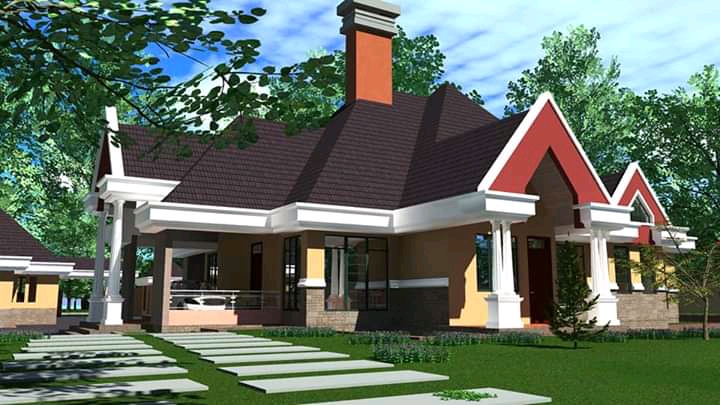
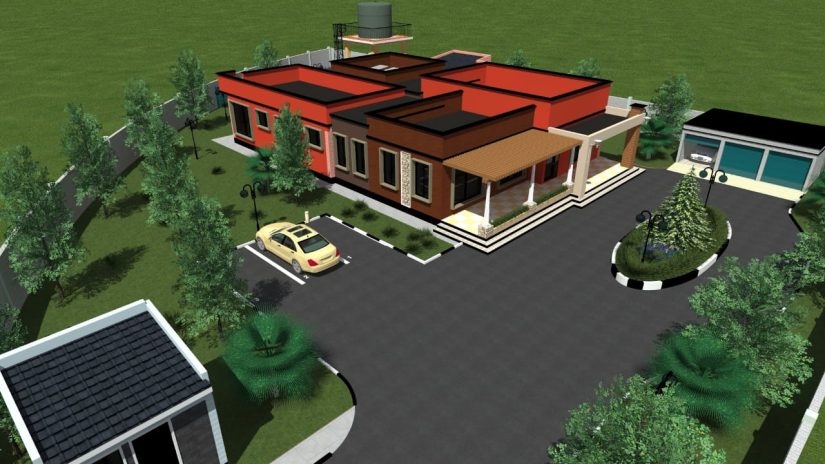
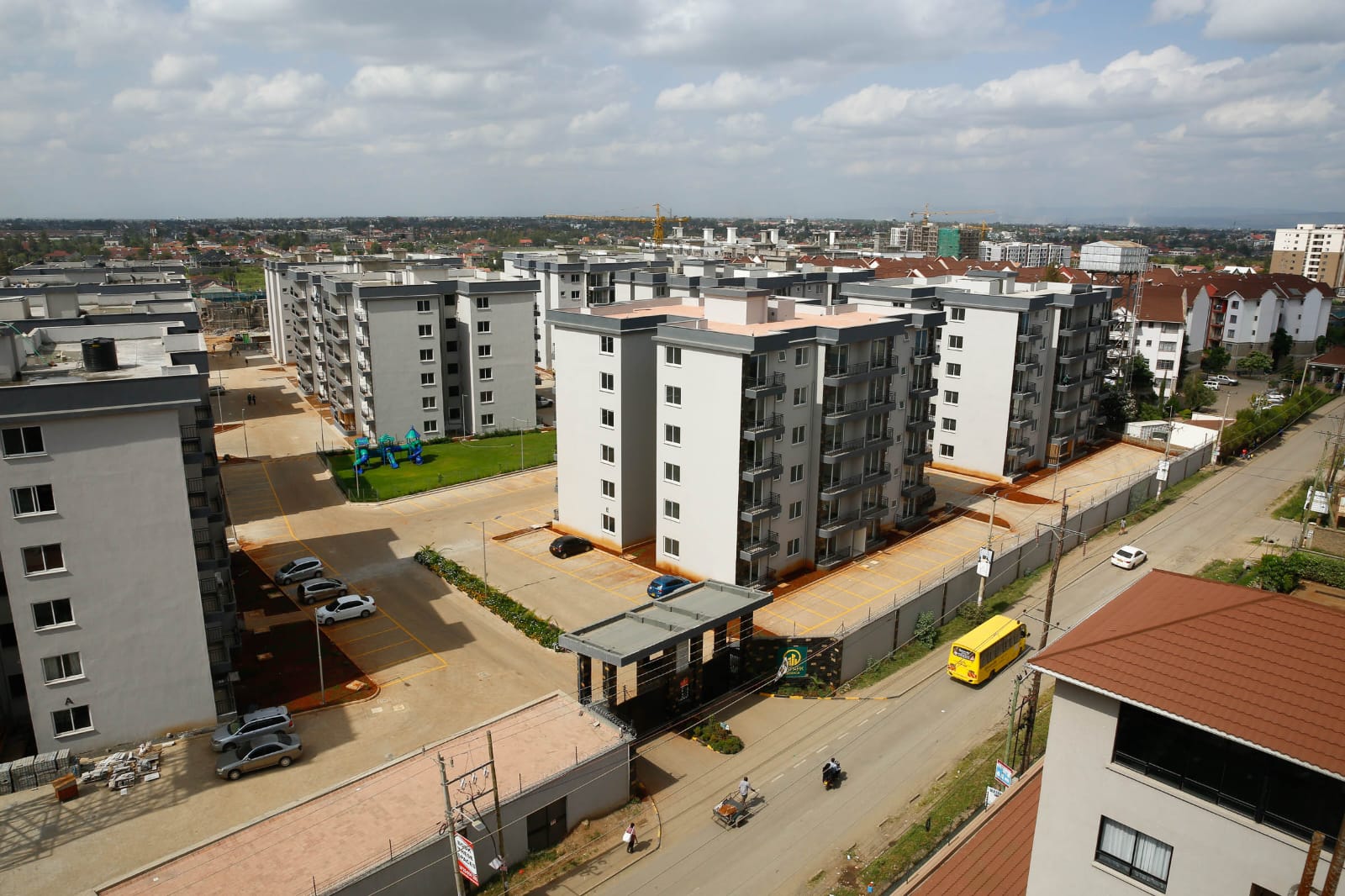
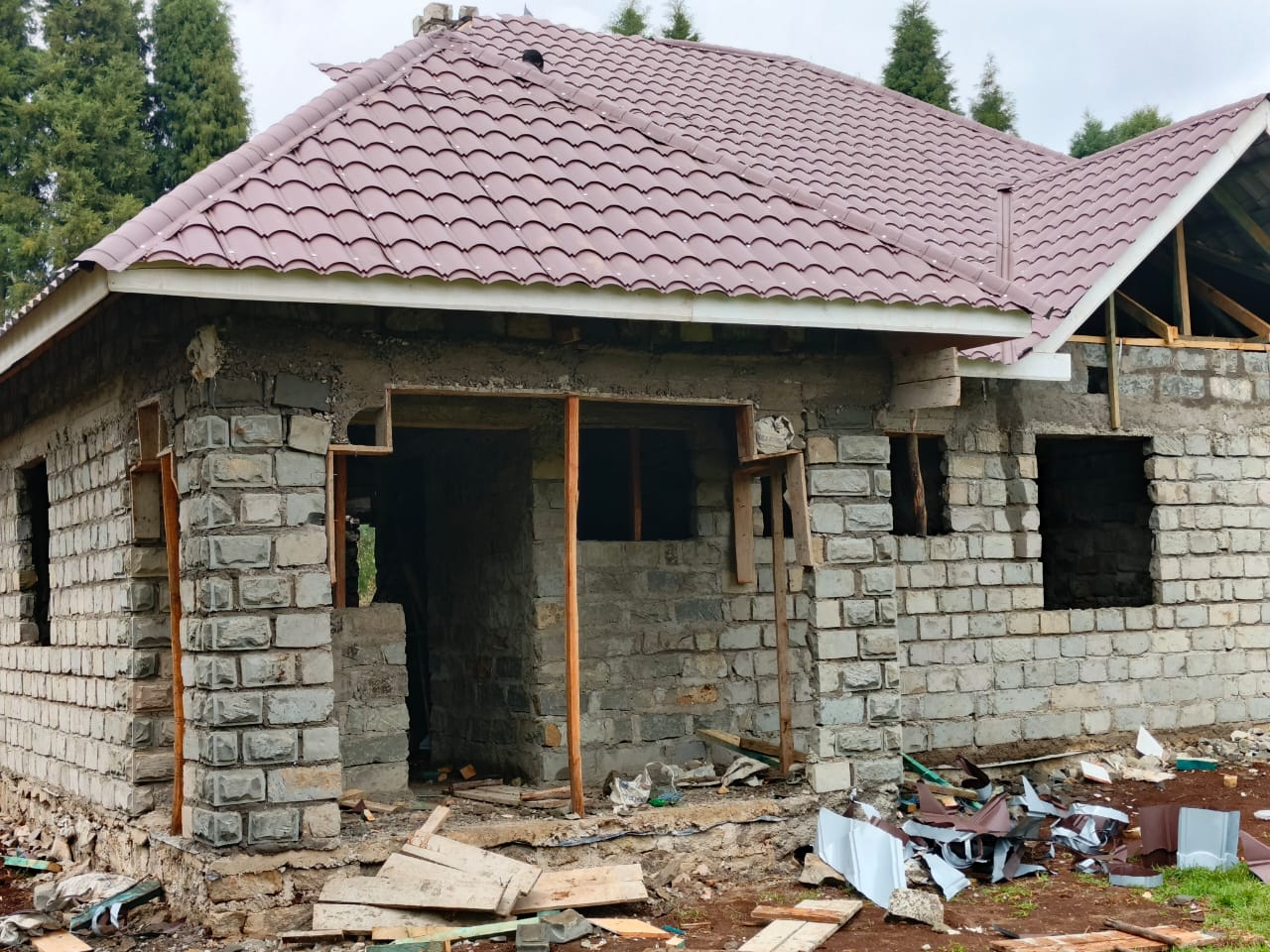

7 thoughts on “Roofing Materials in Kenya – Prices & Best Options”